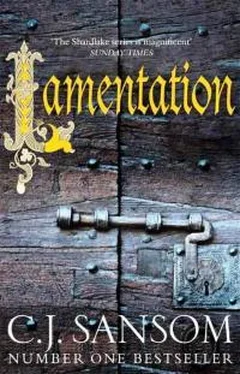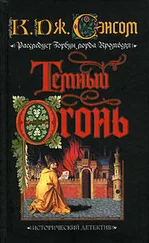If I am right and this happened in March–April when the King was convalescing, that fits with the records of arrests and enquiries which began in April and went on till July. But why, some have asked, should the religious conservatives focus on Queen Catherine Parr? It seems to me that she was the obvious target – she was the centre of a group of highborn ladies who, certainly during Lent in 1546, met together to hear sermons and discuss religion. They included her sister Anne (wife of Sir William Herbert), Lady Denny (wife of the chief gentleman of Henry’s household, Sir Anthony Denny) and potentially most important of all, Anne Stanhope, wife of Lord Hertford. If heresy was proved against Catherine, not only would Henry’s sense of betrayal by a woman he still loved be terrible (there is no evidence at all that he wanted rid of Catherine Parr in 1546, rather the reverse), but likely all the women in her circle would fall too, and with them, crucially, their husbands. Catherine Parr, therefore, was the keystone in the arch; knock her out and the whole reformist edifice faced total collapse.
The heresy hunt went on for three months. The spring and early summer of 1546 must have been a desperate time for Catherine, but she seems to have maintained her composure and behaved calmly throughout. Everyone in her circle seems to have stuck loyally together; though this is hardly surprising – if one fell, all fell. It is possible that searches took place within the Queen’s household, and certainly she gave some books (which may have included Lamentation of a Sinner ) to her uncle Lord Parr for safekeeping in April.
By July nothing had been found against her. By then the questioning of suspects seems to have been largely over. No evidence had been discovered against anyone within the circle of the court except for Henry’s courtier and friend George Blagge, and nobody from within the Queen’s circle. If Thomas Wriothesley and Richard Rich were actively seeking out heretics on behalf of Bishop Gardiner (and possibly, behind the scenes, the Duke of Norfolk), by July they must have been getting desperate.
THEN, IN LATE JUNE and early July came the extraordinary and gruesome story of Anne Askew, whose memoir, the Examinations of Anne Askew , was smuggled out to Flanders, and published the next year by John Bale. Anne Askew, or to use her married name, Anne Kyme, was the wife of a Lincolnshire gentleman. She was aged around 25. By the standards of the time, her behaviour was extraordinary. A radical Protestant who had openly denied the Real Presence in the Mass, she left her husband, a religious conservative, and their two children to come to London and preach in 1545. She had relatives there, certainly a cousin, and distant connections to low-ranking courtiers. Soon she was brought before the Common Council of London, where she denied she was a heretic. Nonetheless, a year later she was back, and this time, although her initial technique in argument was to hedge, she eventually admitted enough to be found guilty of heresy. She refused to recant, and having been brought before the Privy Council and questioned by Gardiner, among others, she was convicted at the end of June and sentenced to be publicly burned, along with three men, on the 16th of July.
There is no evidence that Catherine Parr and Anne Askew ever met or corresponded. They may have had acquaintances in common, but again that is not surprising given the small size of the Tudor elite. Once condemned, according to law, Anne should have been held in prison until her execution. However, at the beginning of July she was sent to the Tower, where, according to her memoir, she was questioned again by Rich and Wriothesley; this time specifically about her links to women in Catherine Parr’s household. Not only was she questioned, she was tortured by Rich and Wriothesley personally, to the horror of the Lieutenant of the Tower, who was present. Asked specifically about her links to ladies in Queen Catherine’s circle, Anne admitted she had had gifts of money from men who claimed to be servants of the Duchess of Suffolk and Lady Hertford, but denied any direct links to them or the Queen. It was not illegal to bring prisoners money to buy food; in fact these donations were necessary to keep them alive.
There seems no reason to doubt Anne Askew’s story; Rich and Wriothesley’s behaviour has all the hallmarks of a last, desperate effort by the religious conservatives to find some evidence damaging to the Queen. Desperate indeed, for torture of a person already convicted – and a woman from the gentlemanly classes – was not only illegal but scandalous; even more so when Wriothesley – as Lord Chancellor, the most senior law officer in England – had himself turned the rack. It was too extreme for the Tower Lieutenant, who promptly went off and told the King, who was horrified. It has been suggested the King himself may have secretly ordered the torture, but there is no evidence to support this accusation one way or the other. It seems more likely to me that Henry was genuinely angered at this attempt to torture someone into providing accusations against the Queen when months of enquiry had failed to find anything credible.
Henry was, by now, already angry with the conservatives. He said that in arresting the courtier George Blagge they had come ‘too close to his person’ and Blagge was pardoned. Given this move, the scale of the King’s anger at those who had tried to torture Anne Askew into providing something harmful to the Queen can only be imagined.
IN FOXE’S ACCOUNT, there was a second plot against Catherine, involving a warrant being issued for the Queen’s arrest, a copy of which, however, was conveniently dropped where it would fall into her hands. This event has been convincingly dated by Dakota Hamilton and others to July 1546. According to Foxe, Catherine’s response was to rush to the King and persuade him that she had never intended to lecture him on religion, only to engage his mind to distract him from the pain in his legs. Again according to Foxe, the gambit succeeded. Henry accepted Catherine’s submission, and Lord Chancellor Wriothesley, when he arrived with the warrant to arrest the Queen the next day, was insulted and beaten about the head by Henry and ordered from his presence – in other words, completely and publicly humiliated.
This has, to me, the flavour of a deliberate ruse by the King, rather than a spontaneous sequence of events as reported to Foxe by two survivors from Catherine’s ladies (though it may have looked genuine to them). To begin with, it is hard to guess the legal grounds on which Catherine could have been arrested in July, since extensive enquiries about her and her ladies had revealed nothing at all. If Henry had actually wanted to dispose of her, he could easily have manufactured something, as he did when he wanted to rid himself of Anne Boleyn and Thomas Cromwell, and was soon to do again with the Duke of Norfolk.
It is worth noting in this context that three years before, when Archbishop Cranmer had been the subject of accusations of heresy by Gardiner, the King had turned the tables on the conservatives in a very similar manner, agreeing that Cranmer should be called before the Privy Council, but giving him his ring beforehand to show to the council as proof he still had the King’s support. The outcome was that a commission to investigate Cranmer was appointed, but headed by Cranmer himself! This tactic had the benefit of humiliating one party (in both cases the religious conservatives) while reminding the other (first Cranmer, then Catherine) very firmly who was in charge. Given the failure of the heresy hunt, it would have been quite characteristic of Henry to humiliate Wriothesley in this way, while forcing Catherine, like Cranmer earlier, to play a part in the deception – and in Catherine’s case, publicly to admit that as a woman it was her place to learn from, and not lecture, her husband.
Читать дальше








![К Сэнсом - Стенание [другой перевод]](/books/432043/k-sensom-stenanie-drugoj-perevod-thumb.webp)
